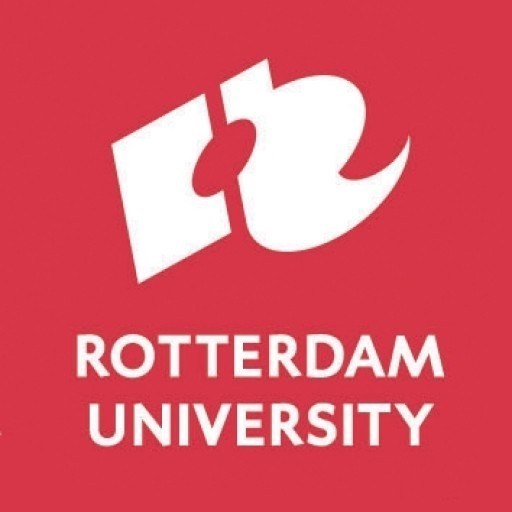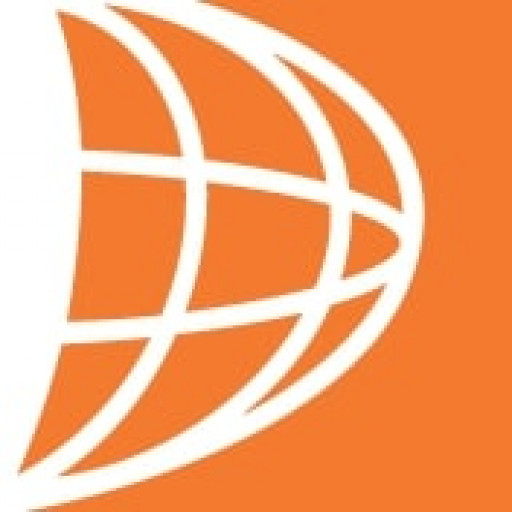Photos of university / #universityofgroningen
The Bachelor's degree in Media Studies at the University of Groningen offers students a comprehensive and interdisciplinary understanding of media and communication in contemporary society. This program explores the dynamic and evolving landscape of media, encompassing traditional forms such as television, radio, and newspapers, as well as digital platforms, social media, and emerging technologies. Students will examine the cultural, social, political, and economic impacts of media, gaining insights into how media shape public opinion, identity, and social interactions. The curriculum combines theoretical frameworks with practical skills, enabling students to critically analyze media content, production processes, and the ethical issues surrounding media use. Throughout the program, students have opportunities to engage in media production, storytelling, and digital communication projects, fostering hands-on experience that complements their academic learning. The program also emphasizes international perspectives and cross-cultural communication, preparing students to work effectively in a globalized media environment. Through courses in media theory, communication research, media history, and digital media, students develop a solid foundation in both the academic study and practical application of media. Graduates of this program are equipped with the critical thinking, analytical skills, and technical knowledge necessary for careers in journalism, media consultancy, content creation, digital marketing, and other media-related fields. The University of Groningen's Media Studies program is designed to be flexible and student-centered, offering various electives and research opportunities to tailor the education to individual interests and career goals. With a diverse faculty of experts in media and communication, students are supported in their academic and professional development, making this program an excellent choice for those passionate about understanding and shaping the media landscape of today and tomorrow.
Media Studies at the University of Groningen offers a comprehensive and multidisciplinary exploration of the rapidly evolving media landscape. The programme is designed to provide students with in-depth knowledge of the theoretical, technological, and cultural aspects of media, as well as practical skills necessary for a successful career in the media industry. Throughout the course, students will examine the role of media in society, the influence of digital and traditional media channels, and the ethical questions surrounding media production and consumption. The curriculum combines core modules in media theory, communication studies, and media technology with specialisations in areas such as journalism, film studies, digital media, and media management. Students will engage with contemporary issues like media globalization, privacy, political communication, and the impact of social media platforms. Practical training includes working with various media formats and tools, developing skills in media production, editing, and content creation. The programme encourages critical thinking and fosters an understanding of diverse media cultures and practices across different contexts. Collaborative projects, internships, and opportunities for international exchange enrich the learning experience, preparing students for dynamic roles in media organizations, broadcasting, journalism, content creation, or further academic research. Graduates of Media Studies at the University of Groningen are equipped to analyze and produce media content thoughtfully and responsibly, contributing meaningfully to debates on media influence and technology’s role in society. The teaching staff comprises experienced researchers and professionals who bring real-world insights into the classroom, ensuring that students gain both academic knowledge and practical competencies. Whether interested in media analysis, production, or policy, students will find a stimulating environment that fosters creativity, innovation, and critical reflection on the media phenomena shaping our world today.
Admission requirements
For both tracks: an internationally recognized Bachelor's degree. For all students in the Dutch-taught track and Dutch students in the English-taught track: a 30 ECTS package of courses in the minor of Media and Journalism Studies (or equivalent courses at another university).
Other requirements
- vooropleiding (ISPAC: vereiste vooropleiding) In principe kun je worden toegelaten met iedere WO-bachelor, mits je door de selectieprocedure komt. Voor de Nederlandstalige track en voor Nederlandse studenten in de Engelstalige track geldt dat zij tijdens hun bachelor een pakket van 30 ECTS uit de minor Media en Journalistieke Cultuur moeten hebben gevolgd (of vergelijkbare vakken aan een andere universiteit).
- vooropleiding (ISPAC: vereiste vooropleiding) For both tracks: an internationally recognized Bachelor's degree. For all students in the Dutch-taught track and Dutch students in the English-taught track: a 30 ECTS package of courses in the minor of Media and Journalism Studies (or equivalent courses at another university).
The financing of the Media Studies program at the University of Groningen typically involves a combination of funding sources that support both domestic and international students. Dutch students often pay a government-set statutory tuition fee, which for many years has been around €2,200 per year for bachelor's programs and approximately €2,200 to €3,000 for master's programs, depending on the specific program and track. International students, especially those from outside the European Economic Area (EEA), generally pay higher tuition fees, which can range from approximately €7,000 to €15,000 annually, depending on the program's specific requirements and the student's nationality.
The university provides several scholarship opportunities aimed at supporting talented students. These scholarships include the Holland Scholarship, designed for non-EEA students, that offers a one-time grant of €5,000 to help cover living expenses and tuition fees. Additionally, the University of Groningen offers faculty-specific scholarships and international awards, which may cover partial or full tuition, or living costs. Prospective students are encouraged to check the official university website regularly for updates on available scholarships, as funding opportunities can vary annually.
Students are also eligible for government student loans and grants, particularly for Dutch residents, through the Dutch national student finance system (DUO). This system provides loan options that cover tuition fees and living expenses and are repayable after graduation, based on income. International students from EEA countries are often able to access similar financial aid and student loan programs, depending on bilateral agreements and specific regulations.
Apart from scholarships and loans, students often supplement their finances through part-time work. The Netherlands has relatively flexible regulations regarding part-time employment for international students, with work hours typically allowed up to 16 hours per week during the academic year and full-time during holidays. Many students find part-time jobs on or near campus, working in cafes, bookstores, or administrative roles, which assist in covering daily expenses.
The university itself offers various financial aid and support services, including budgeting advice, workshops on financial planning, and information about student discounts available across the Netherlands—such as transportation, cultural events, and shopping discounts—that help manage living costs effectively.
Funding sources for the Media Studies program are comprehensive and designed to accommodate the diverse needs of both Dutch and international students. While tuition fees are set by government regulations and can vary based on nationality and program level, the availability of scholarships, student loans, and part-time employment opportunities plays a crucial role in making education feasible and accessible. Prospective students are advised to explore all options early in the application process and utilize university resources to optimize their financial planning for successful completion of the program.
Media Studies at the University of Groningen is a comprehensive interdisciplinary programme designed to provide students with a thorough understanding of the complex media landscape that shapes our society today. The programme explores various aspects of media, including their histories, theories, and impacts on cultural, political, and social life. Students acquire a critical awareness of the role media play in shaping public opinion, identity, and communication processes.
The curriculum offers a balanced blend of theoretical knowledge and practical skills. Students study topics such as media theory, communication research methods, digital media, visual culture, and media production. Specializations may include areas like journalism, advertising, media management, or digital communication, allowing students to tailor their studies to their interests and career goals.
Throughout the programme, students are encouraged to develop analytical skills and a critical approach towards media content and practices. They learn to evaluate media messages, understand media industries, and examine the societal implications of media technologies. The programme emphasizes research-based learning, where students engage in projects, case studies, and media analysis tasks.
The University of Groningen provides state-of-the-art facilities, including media labs and digital production studios, to support hands-on learning. Students also have opportunities for internships and collaborations with media organizations, which enhance their practical experience and employability.
Graduates of Media Studies are prepared for diverse careers in media organizations, advertising agencies, public relations firms, digital content creation, media consultancy, and academia. The programme's broad emphasis on critical thinking, media literacy, and technological competence ensures that graduates are well-equipped to navigate and influence the rapidly evolving media environment.
In addition, the university promotes an international environment, offering courses in English and attracting students from around the world. This diversity enriches classroom discussions and broadens students' perspectives on global media issues.
Overall, the Media Studies programme at the University of Groningen combines academic rigor with practical skills development, fostering active, reflective, and innovative media professionals ready to meet contemporary media challenges.









